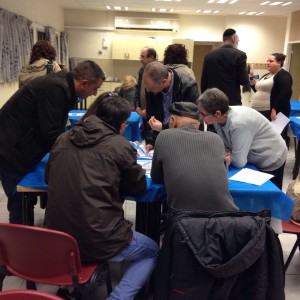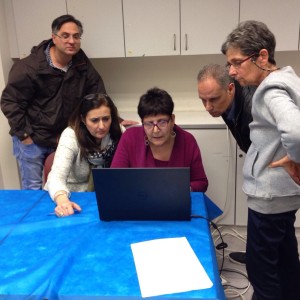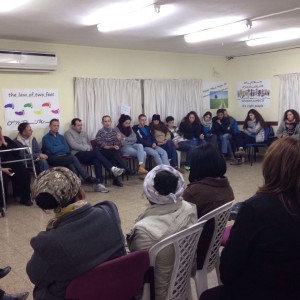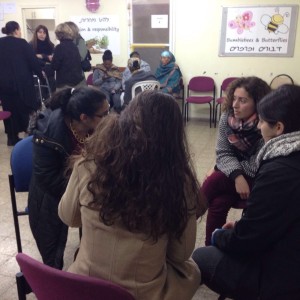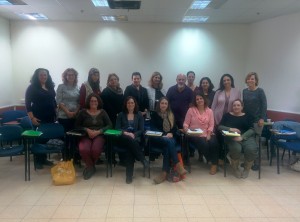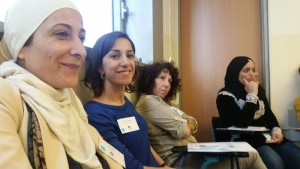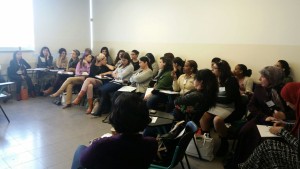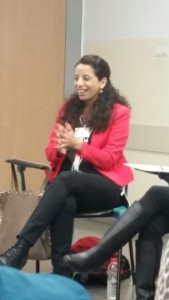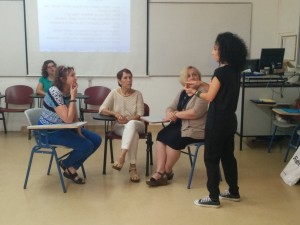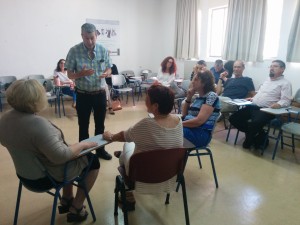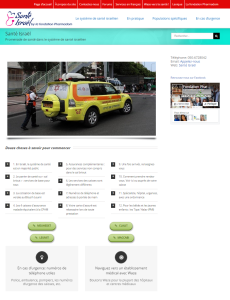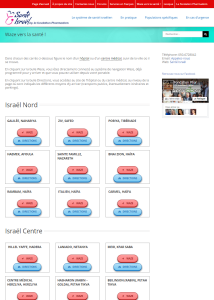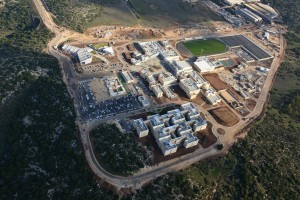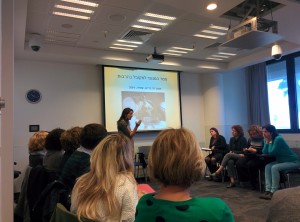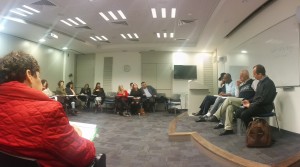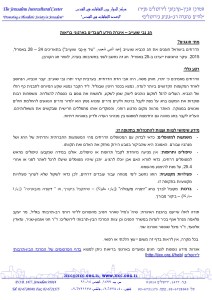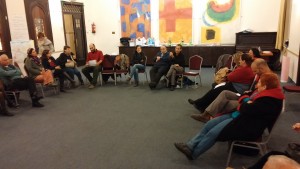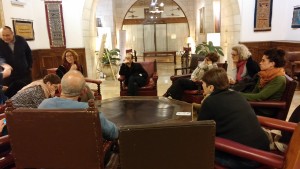Continuing to Build Community by Solving Problems in Gilo
Extension of the light rail to Gilo is a good thing, right? Or will it just bring years of disruptive construction and lost income for local businesses?
These were some of the issues that we’ve been having in Gilo, together with professionals from the Gilo Community Council and the staff of the transportation master plan.
We’ve been helping the staff from the Gilo Community Council lead the process with local residents for the past few months. Residents first learned about the new line that is being built to Gilo and how it will affect their everyday lives. They also met with staff from the transportation master plan, and presented them with their questions and concerns. And last week, on February 2, residents had an opportunity to submit their objections to the current plan.
We’re not talking about objections to the overall concept of the construction of the light rail. These objections were more like specific requests on how to improve the way the rail is built (in stages, instead of all at once), the placement of electrical lines, objections by local businesses on how to minimize the damage during and after construction, etc. We helped the process by making this event a one-stop shop – the room was divided into a number of geographical and other areas, and professionals were on hand for consultation and help in writing up the objections. A lawyer was also there to sign the objections before submission. Most importantly, residents of Gilo felt they have the power to influence the construction of the light rail line. And they have the power to influence other areas of their lives as well.
Since this process is long-term (given previous experience, it could go on for a decade), the partnership we’ve all been working toward is also a long-term partnership, one based on mutual respect and a desire to respond to residents’ real needs. In this process we’ve built up a community that communicates with each other – on Facebook, through the community newspaper, and more – and solve problems together, in real time. We’ll keep you posted on the continuing developments.

